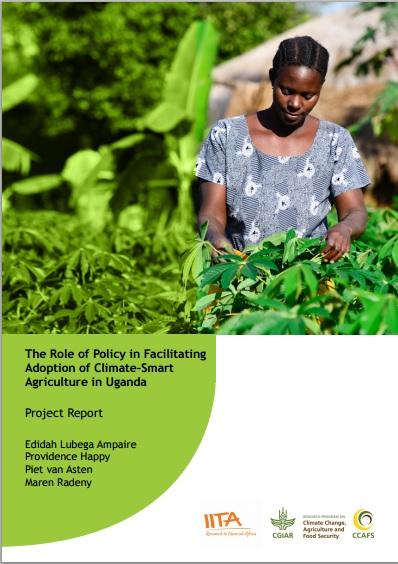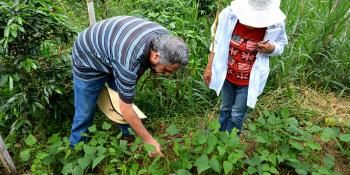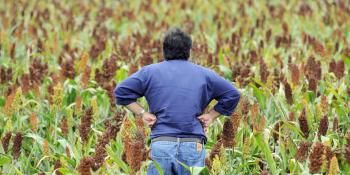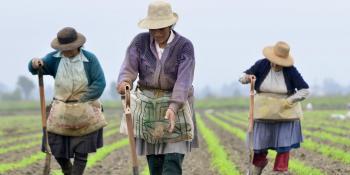Policy formulation and implementation gaps hamper climate change adaptation in Uganda
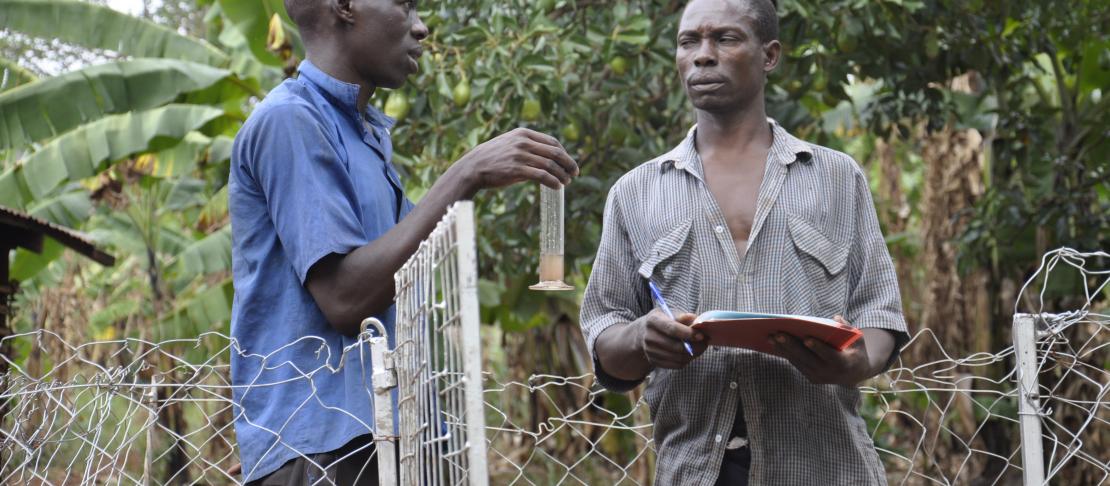
Study explores the role of policy in facilitating adoption of climate-smart agriculture in Uganda.
Policy formulation processes and implementation gaps are likely to increase the vulnerability of smallholder farmers in Africa to climate change. This is despite significant efforts in agricultural research for development that try to address farmers’ vulnerability to climate change effects.
A recent case study in Rakai district, Uganda carried out by researchers from the International Institute of Tropical Agriculture (IITA) shows that for policies to be effective, there is need to include all key players in the formulation and implementation processes. In most cases, policies were formulated through a top–down and unidirectional approach with the main actors being government agencies. There is little involvement of other actors such as civil society organizations, local governments and local farming communities, who are expected to implement such policies. The study targeted policies relevant to climate change adaptation.
“There is lack of appreciation regarding the ability of communities to shape effective policy implementation,” noted one of the District Officers who took part in this study. Subsequently, farmers were unaware of the existence and provisions of the policies.
Rakai district is one of CCAFS learning sites in East Africa and is increasingly getting drier due to climatic changes. In a baseline household survey for Rakai District the site was selected as a case study to represent sub-national policy implementation levels.
Policy formulation and implementation constraints
Researchers found that involvement of communities during policy development was limited by lack of time and financial resources to invest in local consultations. Links between districts and national ministries were mostly limited to donor assisted interventions. However, when projects closed, actors reverted to the status quo and linkages remained largely inactive. The Uganda National Adaptation Plans of Action (NAPA), for example, was formulated and implemented as a project and implementation stopped when the funding ran out.
At the local level, institutional structures such as environmental committees that support implementation of policies needs to be strengthened. This could be done through availing adequate financial and human resources. Significant political interference across different implementation levels was also found to be a challenge. Interference modes included conflicts of interest, for instance, between enforcing the policies/by-laws versus becoming ‘unpopular’ with the electorate; promoting ‘development’ projects known to have negative impacts on the environment; and lack of transparency in leasing out public or communal land.
“We do not report cases of interference with wetlands and community land because we do not know where and who to report to. We have seen culprits walk free and we felt that reporting would not help us,” a village chairman explained.
Implications of the current status on adoption of climate smart technologies
Poor implementation of macro policies at national level due to the challenges mentioned above may result in a lack of enabling strategies or by-laws at lower levels because there is no framework to guide local initiatives. This implies that a lack of policy implementation directly or indirectly increases farmer’s vulnerability to climate change effects.
When smallholder farmers lack access to water (for livestock and irrigation) due to poor implementation of policies protecting wetlands for instance, as is the case in Rakai, their adaptive capacity is reduced.
With effective implementation of policies, accompanying regulations and by-laws, the prevailing circumstances (leasing of protected areas, restricting access to buffer areas, poor farming methods) can change, reducing further farmers’ vulnerability and paving way for increased adoption of climate-smart agriculture technologies. These technologies include crop diversification, planting of drought tolerant crop varieties and expanding irrigation systems among others, including and supported by timely access to climate information services.
Recommendations
To enable effective policy implementation, all key players must be brought on board right from the policy formulation stage. There is also need to create awareness of the various policies so that end-users know and demand enforcement from respective actors. Other constraints to policy implementation also need to be addressed. Translation of policies into local languages might help in reaching out to more people.
There is also need for more focused research to generate more knowledge regarding constraints to policy implementation and enforcement. For example, identifying the right actors for effective implementation would help in resolving the redundancy in roles among actors. Also, analysing trade-offs would highlight the most cost-effective implementation strategies. Scenario modelling would help identify trade-offs and synergies between actors and scales.
Download this study report:
Ampaire EL, Happy P, Van Asten P, Radeny M. 2015. The Role of Policy in Facilitating Adoption of Climate-Smart Agriculture in Uganda, Copenhagen, Denmark: CGIAR Research Program on Climate Change, Agriculture and Food Security (CCAFS).
Further reading:
-The report findings have provided the basis for an extensive project entitled 'Policy Action for Climate Change Adaptation (PACCA)', led by IITA in Tanzania and Uganda. Read all related PACCA blogs
- Searching for better bean varieties in Uganda
- Access the Rakai/ Kagera Basin site atlases
- To receive updates from CCAFS, subscribe to our feeds. Follow us on Twitter and Facebook.
Edidah Lubega Ampaire is a Social Scientist and Providence Happy is a Research Assistant. Both work for the International Institute of Tropical Agriculture (IITA), Uganda. Maren Radeny is Science Officer, CCAFS East Africa.

